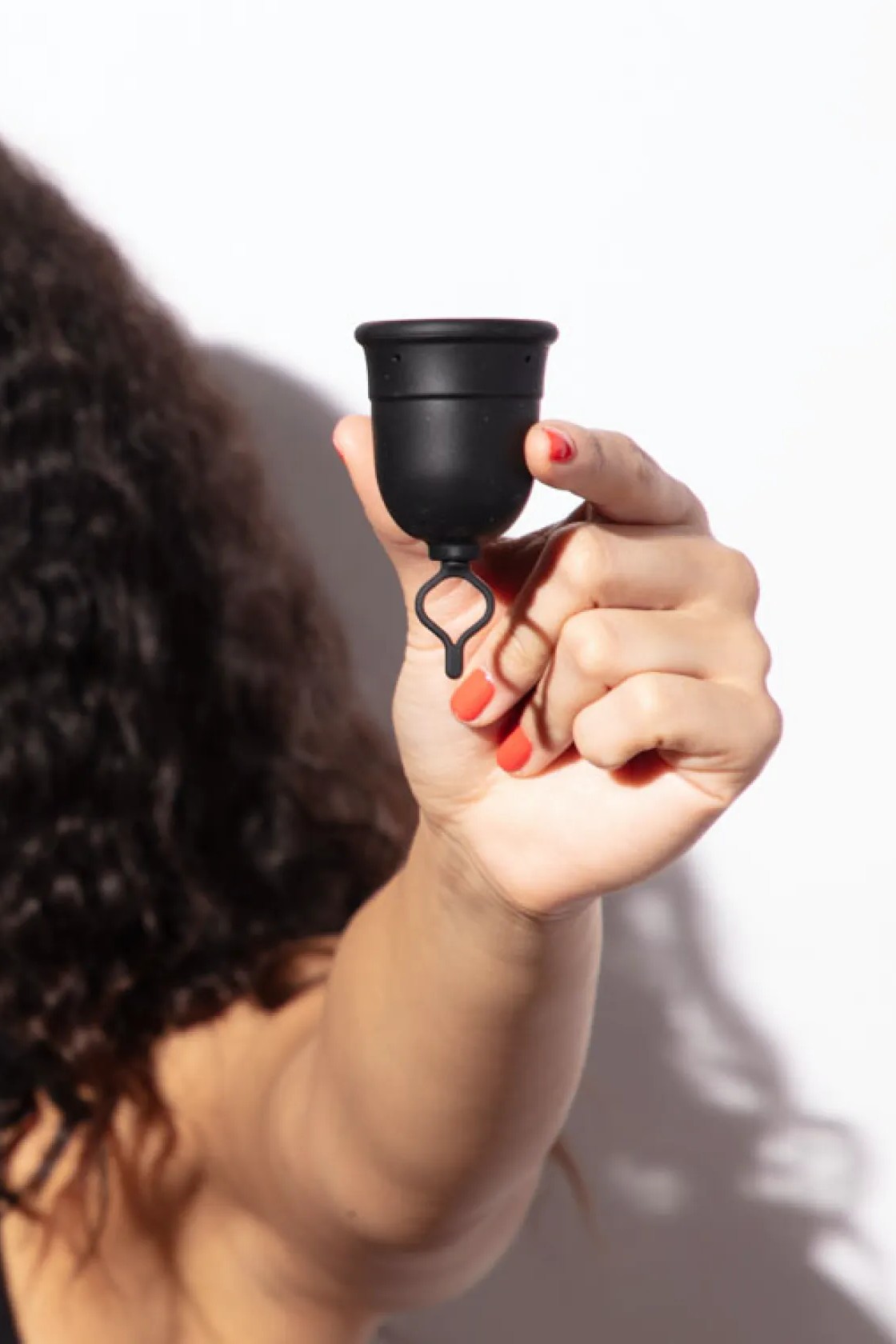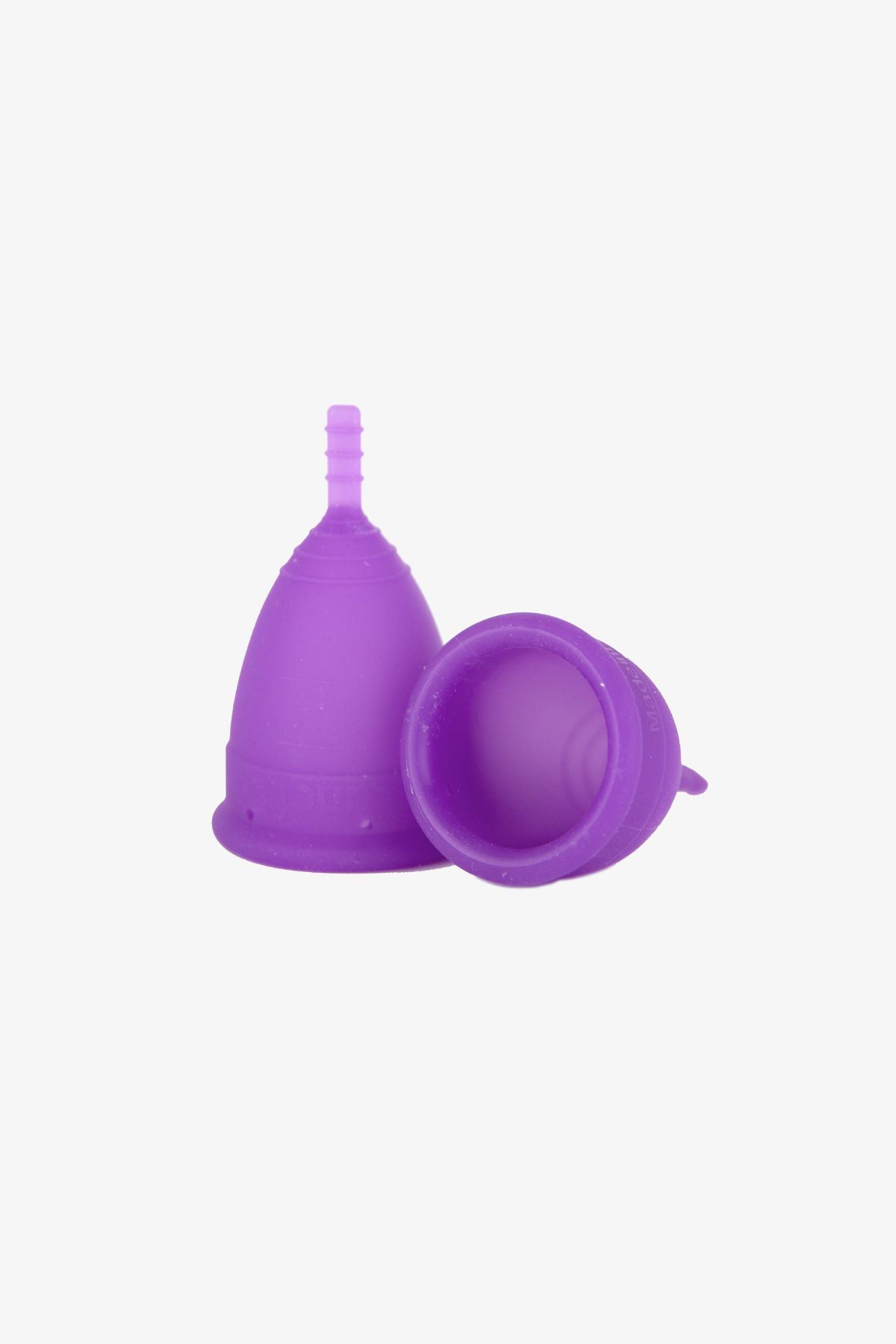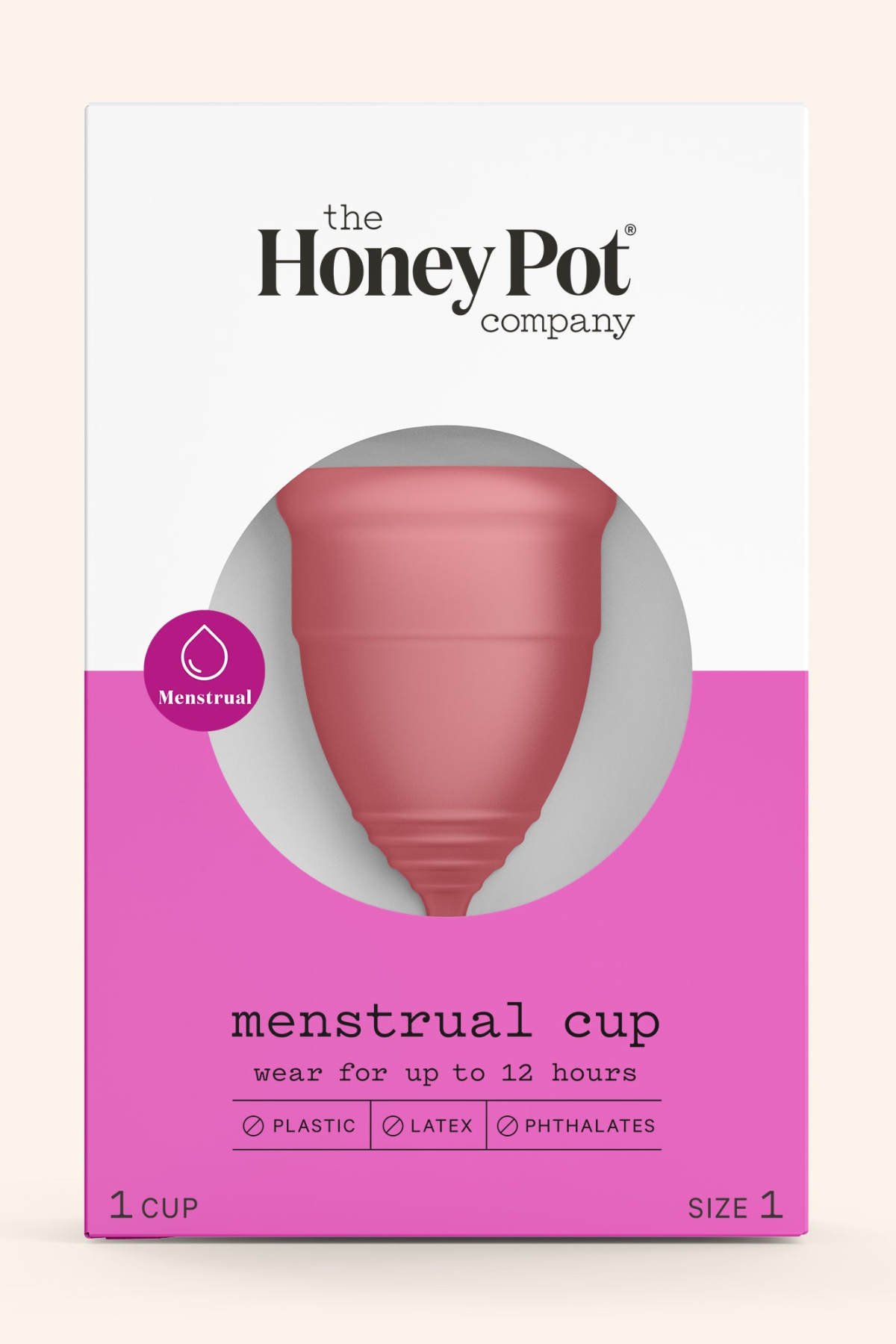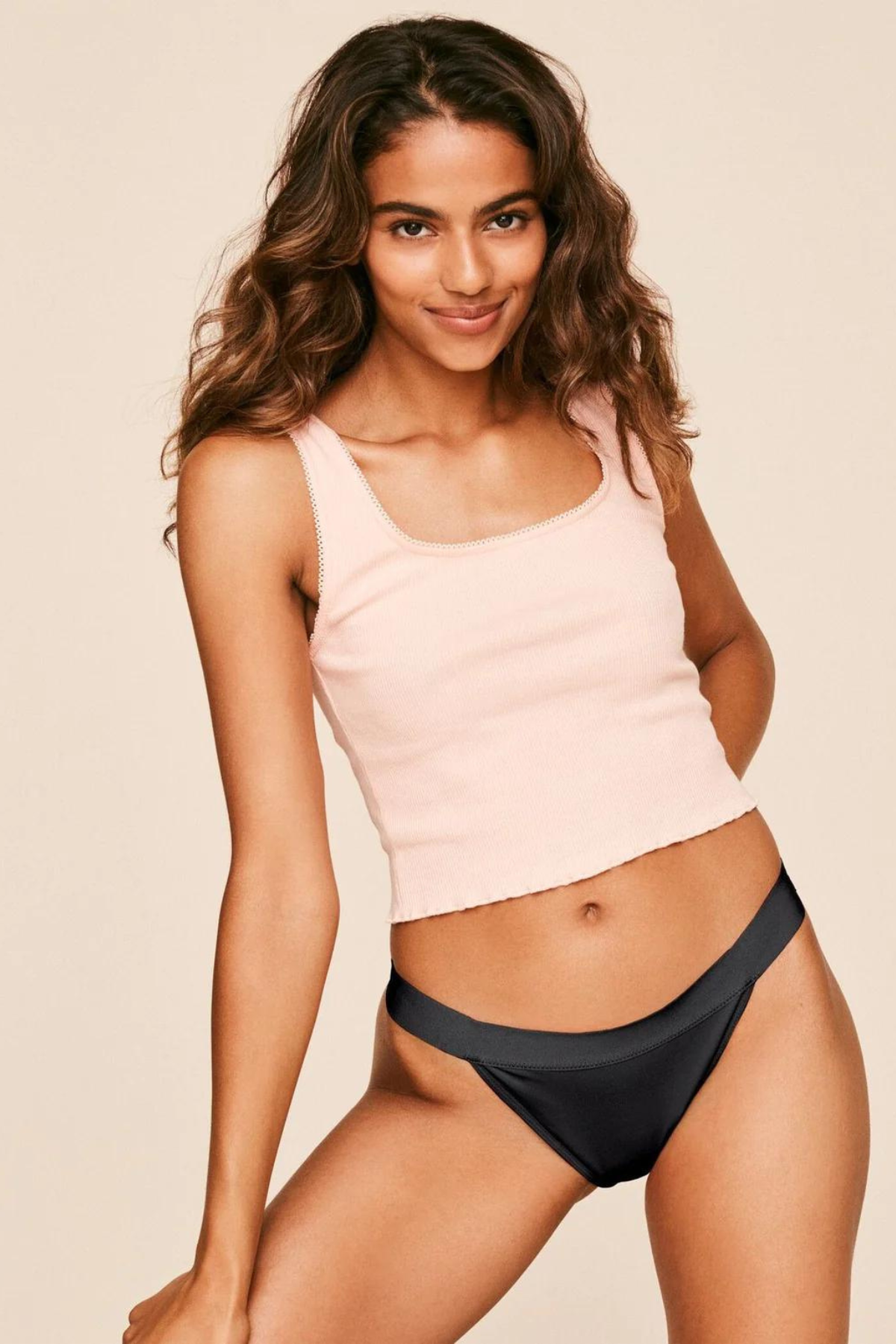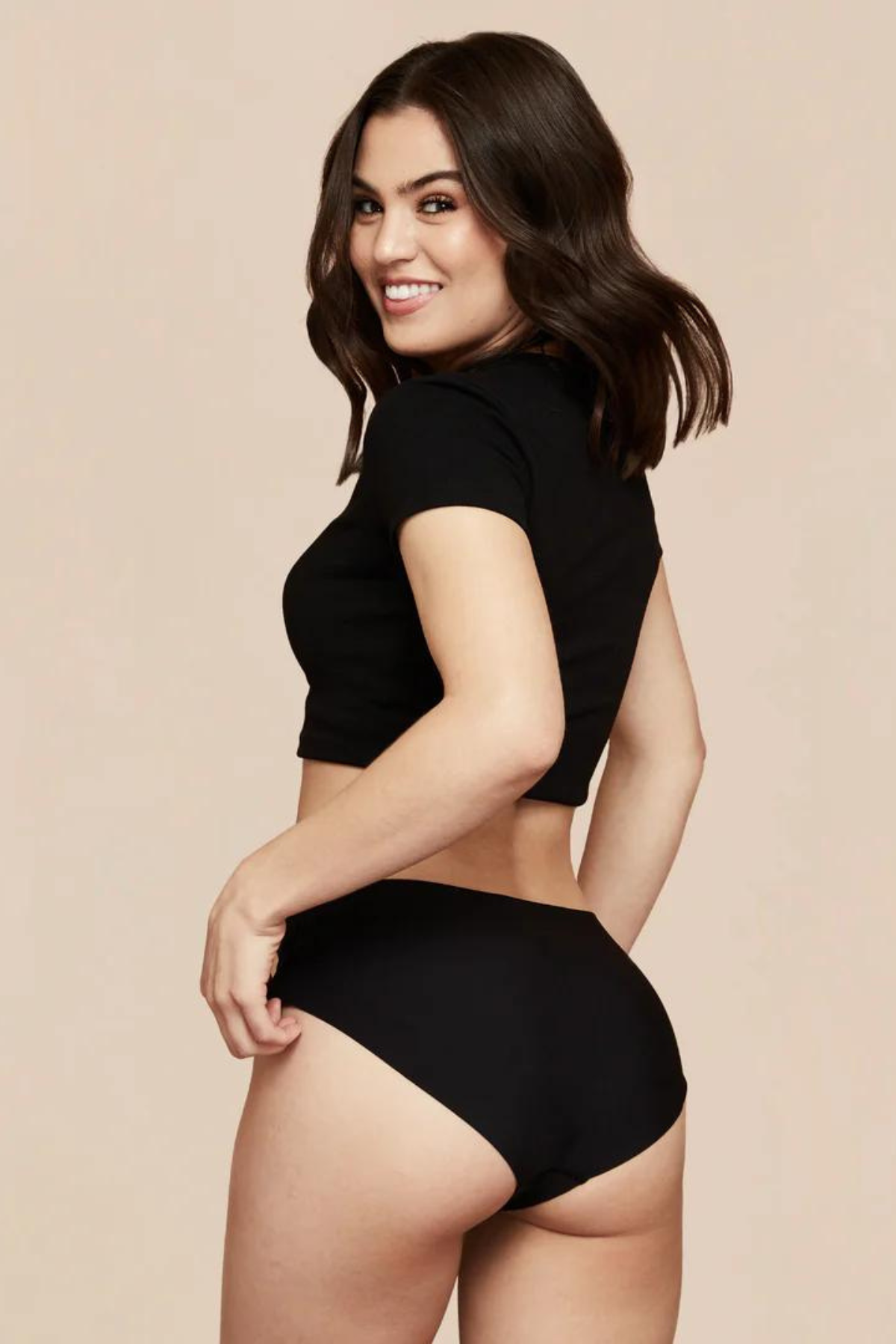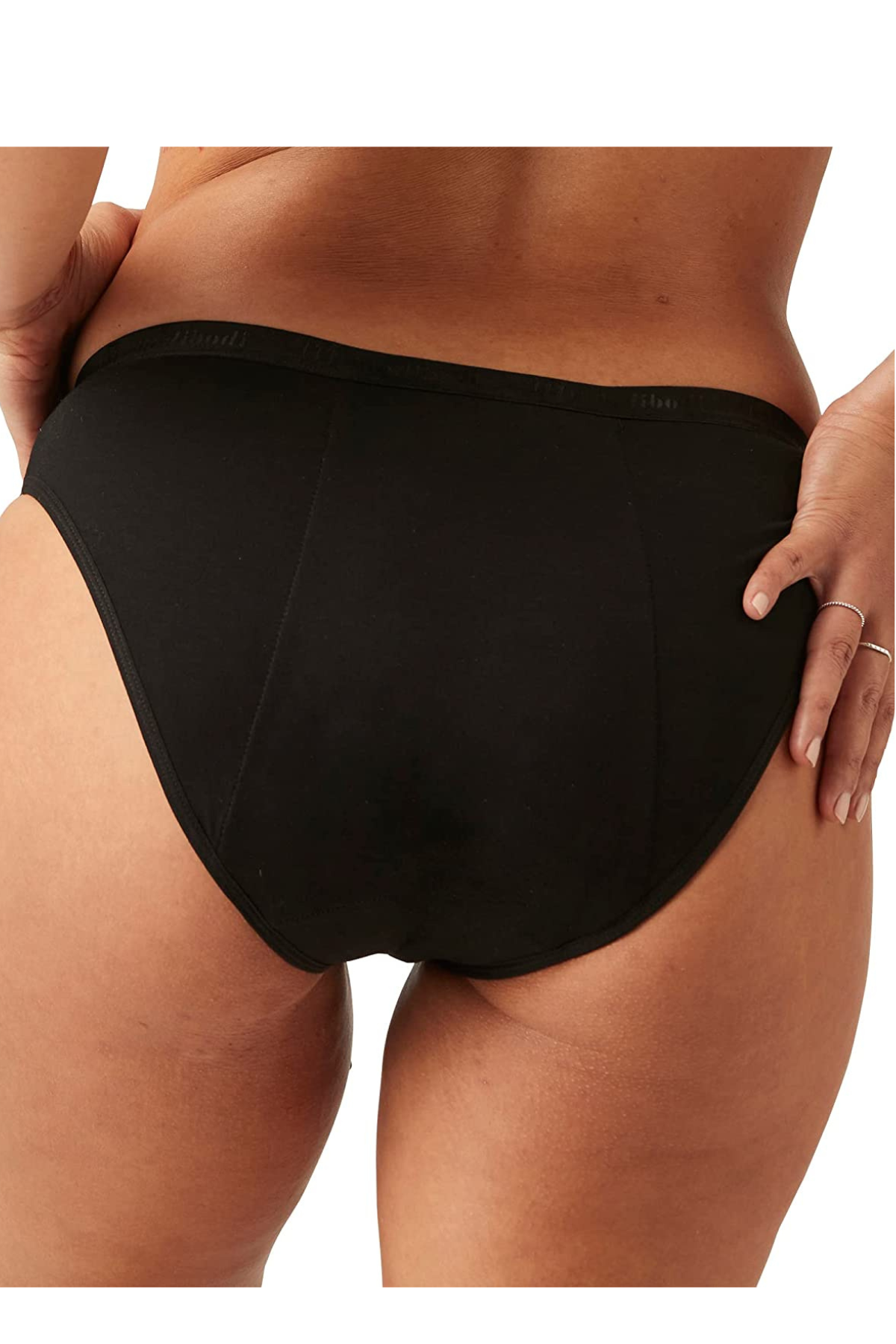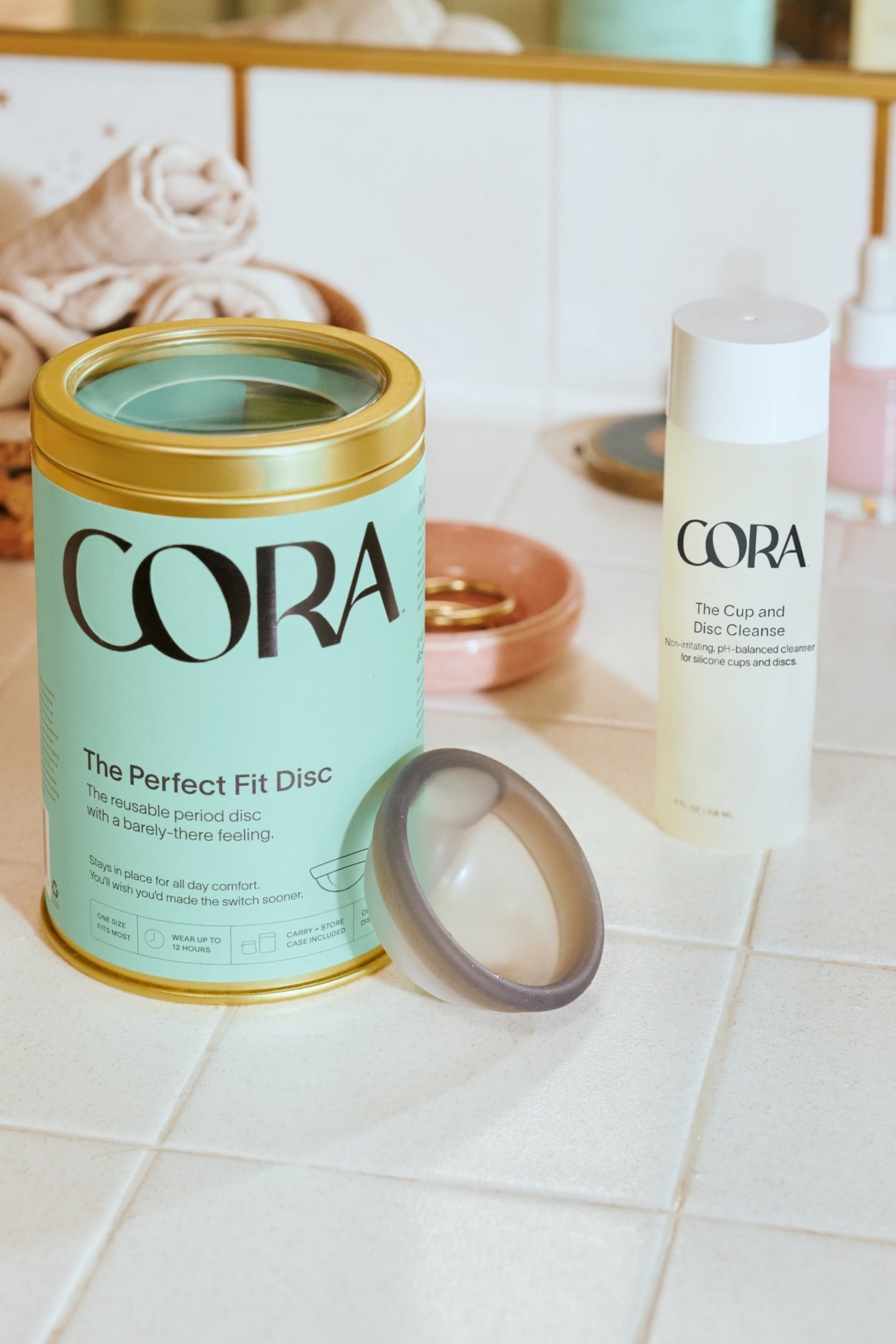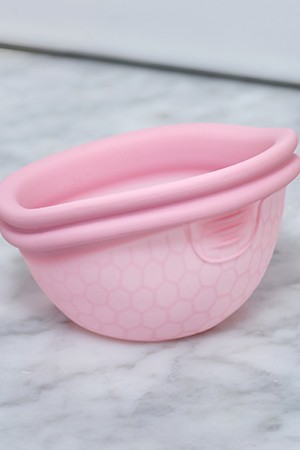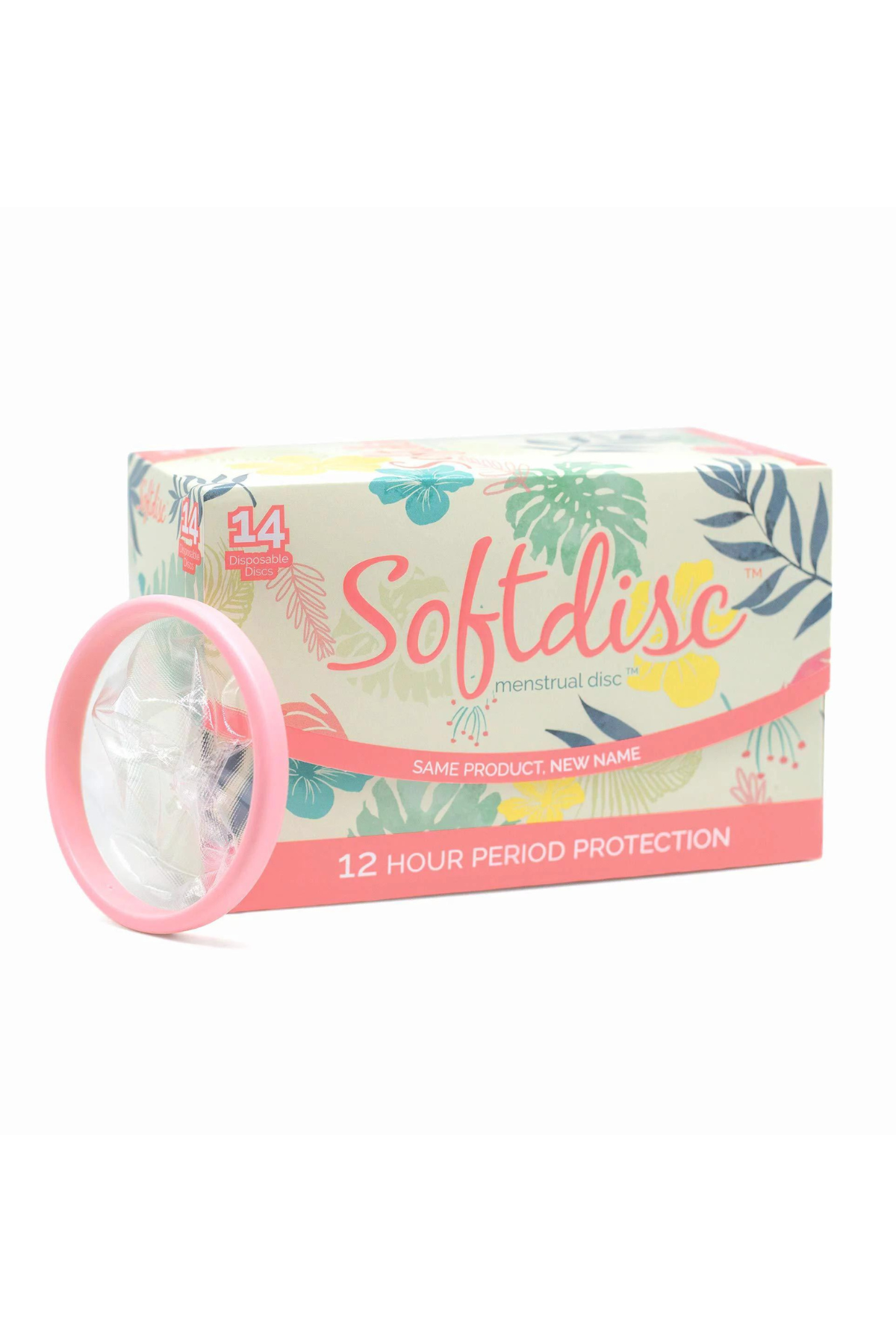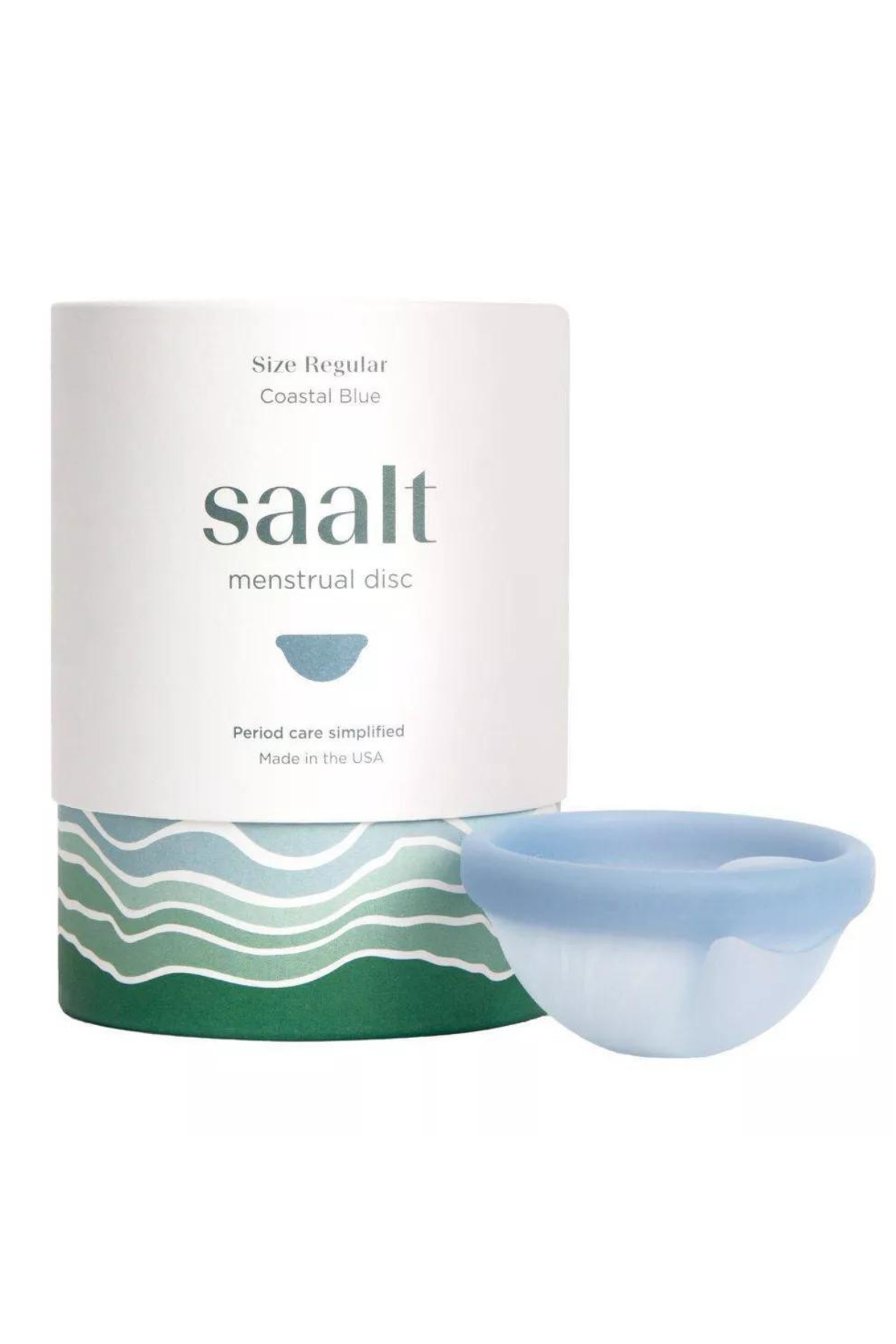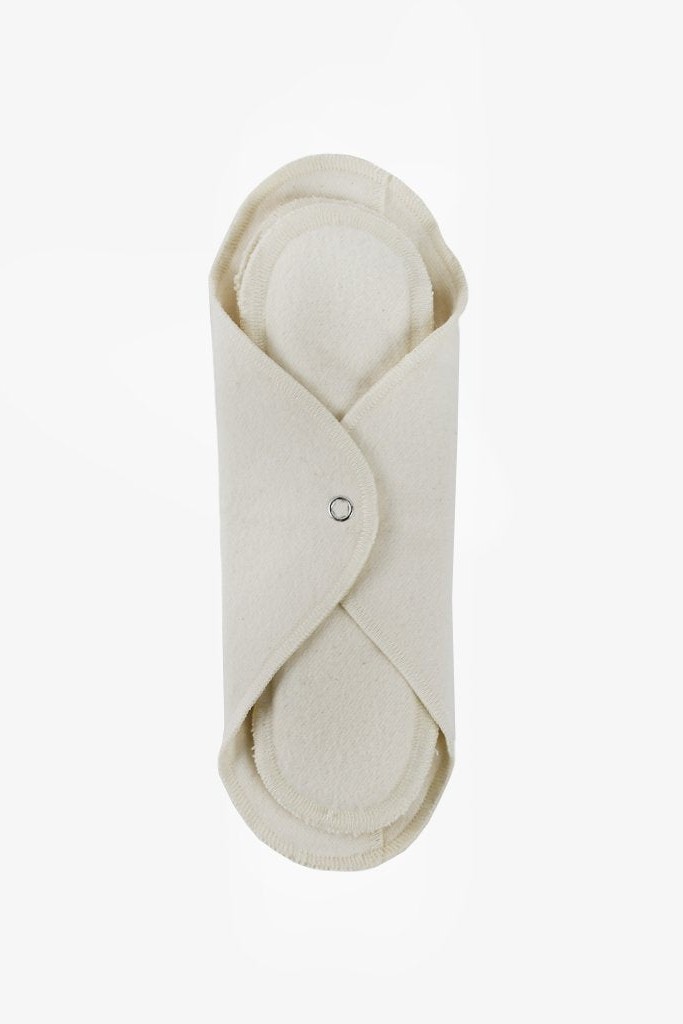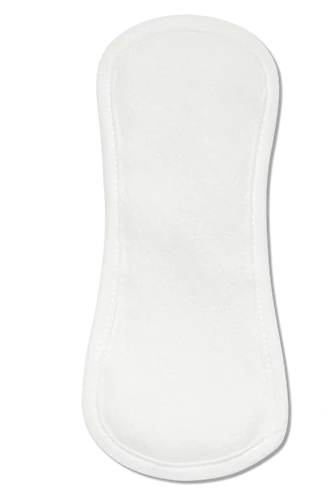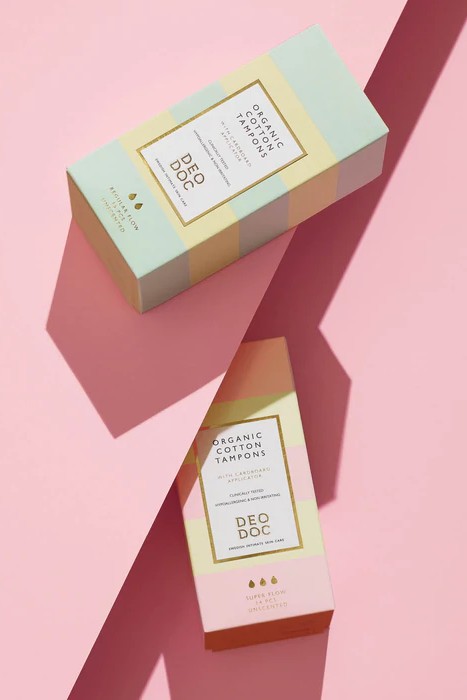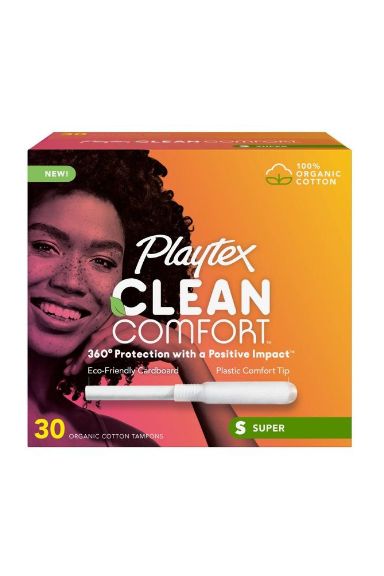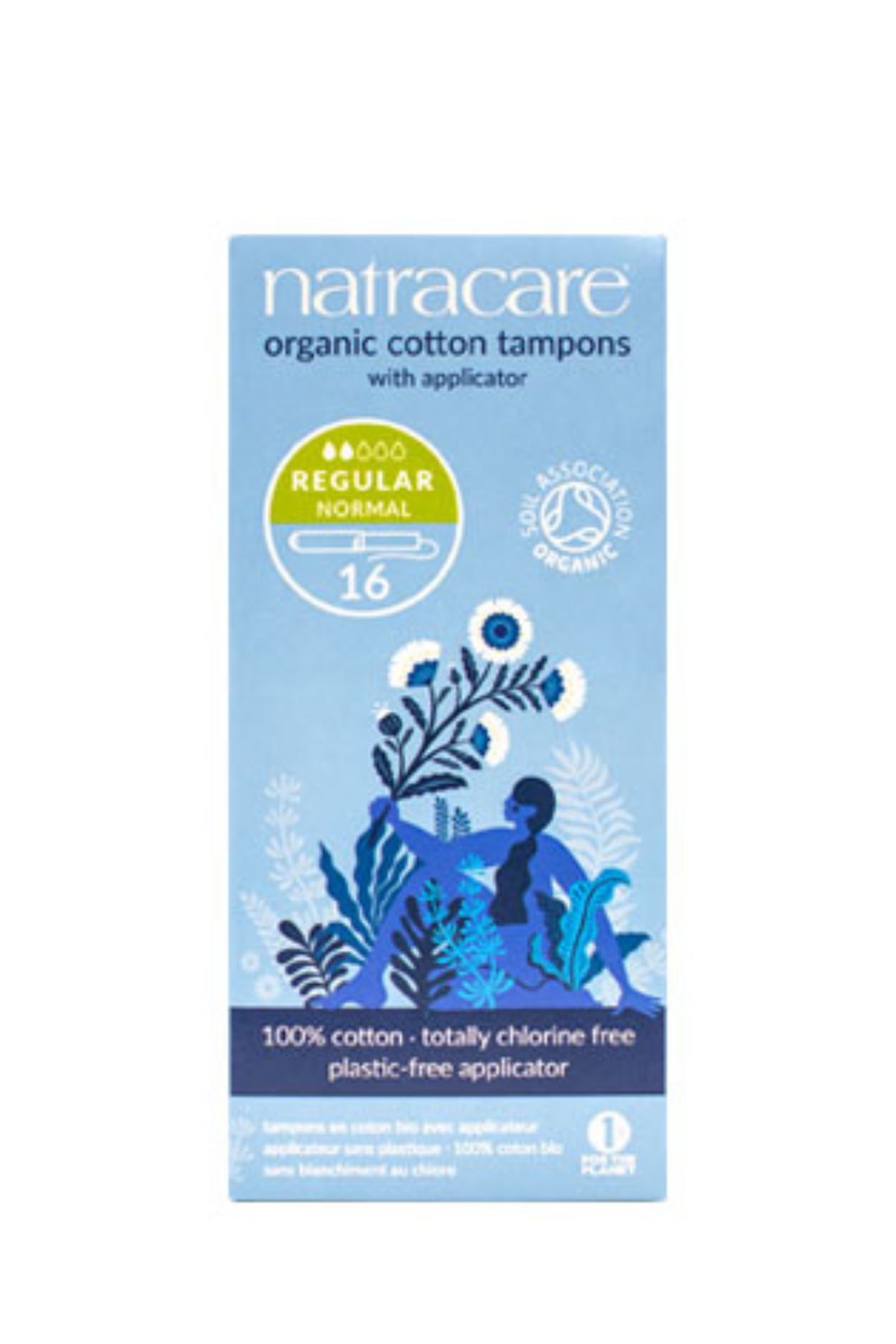20 Sustainable Period Products You'll Actually Use
Good for the planet, good for your wallet.
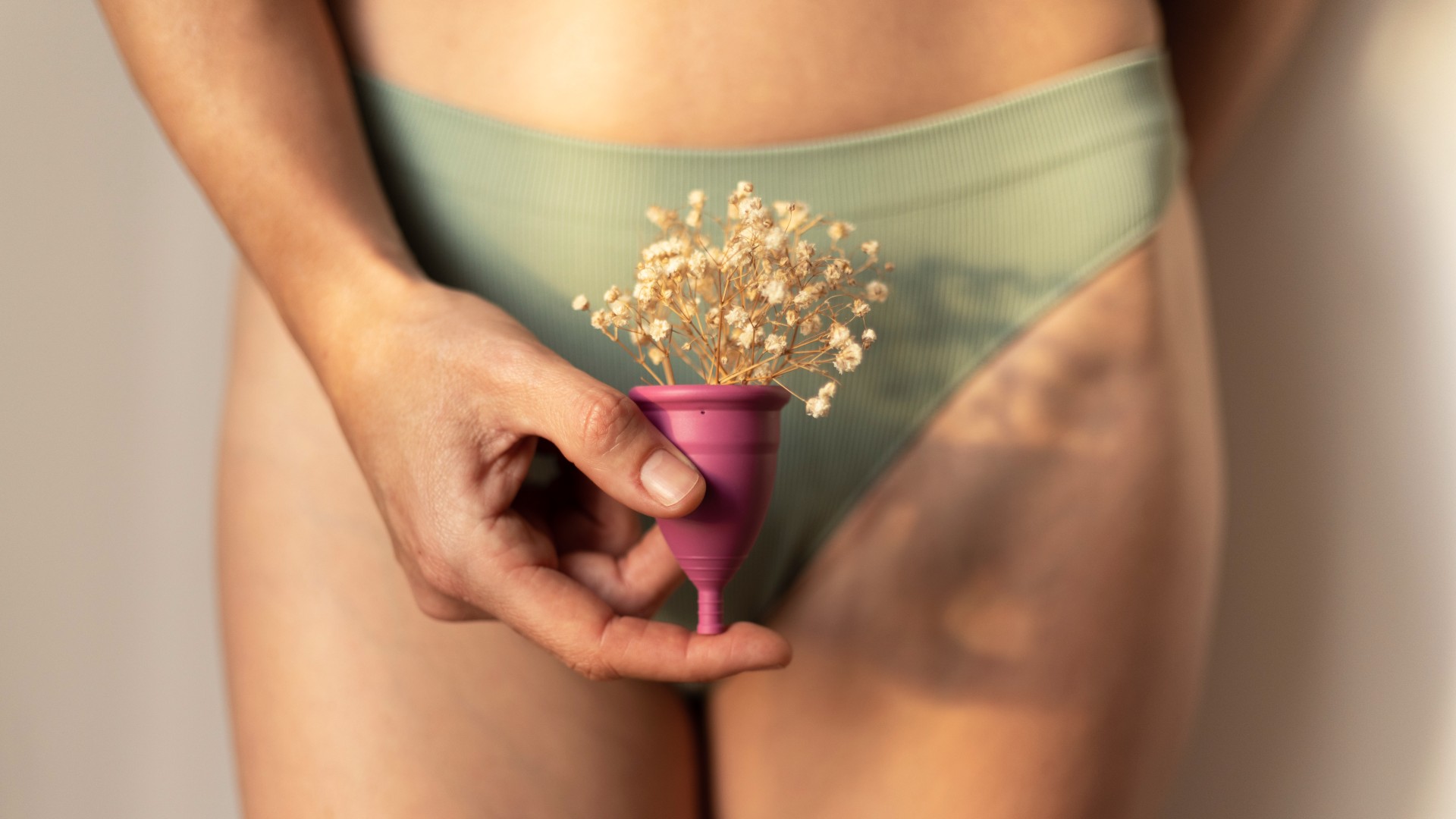

Did you know that the average menstruating person uses between 5,000 and 15,000 pads and tampons in their lifetime? Not only does this add up financially, resulting in what's known as the Tampon Tax—eschewing disposable period products can save you up to $200 per year, according to DivaCup founder Carinne Chambers-Saini—but those menstrual products also end up in landfills and in our oceans and waterways. Many of those products contain chlorine, dioxin, and other chemicals that are harmful to the environment and potentially to our bodies. Plus, the plastic applicators from most tampons take hundreds of years to decompose (meaning that your tampons will outlive you...and your kids...and potentially their kids). For these reasons, I've personally made the choice to switch over to sustainable menstrual products like period underwear, menstrual cups, and menstrual discs, and I'm so glad I did.
With the effects of climate change growing increasingly severe (and increasingly difficult to ignore), there is a growing movement to encourage individuals to make more sustainable choices in their everyday lives. It's important to point out that large corporations like ExxonMobil and Shell have a greater responsibility to make better choices than we individual consumers do, being that just 100 companies are responsible for over 70 percent of climate change. However, if we collectively choose to employ sustainable products in our daily routines instead of products that include plastic packaging or produce harmful waste, then we can use our dollars to encourage companies to produce more eco-friendly products and ditch their wasteful ways.
So here's to using menstruation as an avenue to be more sustainable in our daily routines and to encourage large corporations to follow suit. Below, check out some of my favorite products that have saved me money, time, and hopefully can play some role in saving Mother Earth.
The Menstrual Cup
The period cup, with its longwear potential and reusability, has long been at the forefront of the sustainable menstrual product movement. It's inserted and removed like a tampon, but can be worn for up to 12 hours without putting you at risk for Toxic Shock Syndrome. Chambers-Saini says this is because tampons, which can cause TSS, are often made from rayon and polyester fibers that can scratch the vaginal canal, introducing bacteria that causes TSS. High-absorbency tampons also rob the vagina of the moisture it needs to naturally clean itself. Menstrual cups, on the other hand, are neither absorbent nor capable of causing scratches.
"People who try the product say that their lives are transformed when they try the cup," says Chambers-Saini. "At first, they're nervous it's going to be messy and difficult to use, but then they try it and experience not having to worry about replacing it or exposing the body to chemicals, and they find that this is a really empowering product."
If you've never used a menstrual cup before, you may have a few concerns, the most common of which we've tapped Chambers-Saini to help assuage. "Taking the cup out is the most common concern that we hear, and I assure you that it can't get lost," says Chambers-Saini. "The vaginal canal is only about four to six inches long and is blocked by the cervix." She goes on to say that, if you're still concerned, be aware that the cup isn't supposed to be inserted as deeply as a tampon would be, and should inside "worn a bit lower and more angled in the vaginal canal." Proper positioning will make removal easier and will ensure that the cup doesn't put pressure on the urethra (which can make urination difficult).
And if you are having trouble removing the cup? Chambers-Saini says, "If it does manage to wiggle its way up—which occasionally happens if it's not positioned properly—we have some tips and tricks on our website, like squatting and bearing down a little bit, which shortens the vaginal canal substantially. From there, pinch the base of the cup, gently pulling it from side to side to allow some air to enter. That should break the seal and you should be able to remove it very easily."
Get exclusive access to fashion and beauty trends, hot-off-the-press celebrity news, and more.
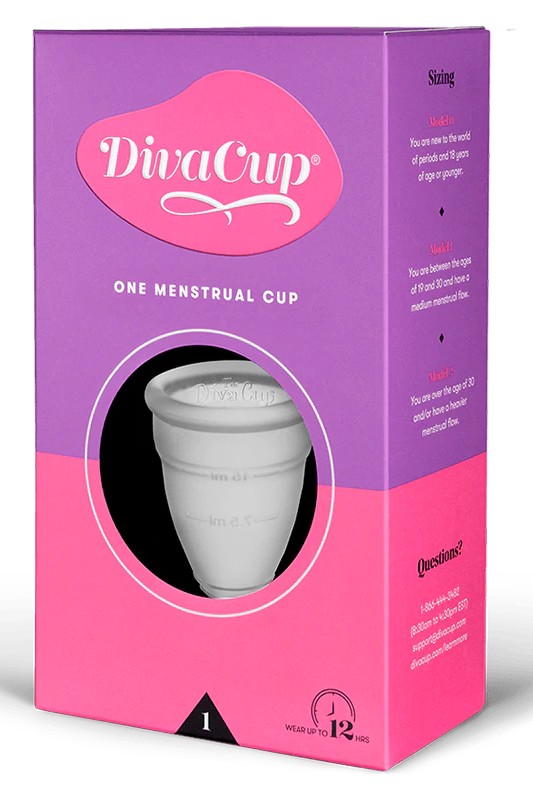
The DivaCup is made from 100 percent medical-grade silicone, which biodegrades over time. DivaCup also lets you send your cup back—at no cost to you—through their recycle program, so you can decrease your ecological footprint even further.
Period Panties
I was pretty skeptical when I first heard about period panties. Sitting around all day while I bled all over my clothing? No, thank you.
But when I finally opened my mind enough to try period underwear, these products changed my life (or at least my menstrual cycle) forever. These panties are made of super-absorbent, super-washable fabric, so you don't have to worry about leaks or bleeding through them. It's also so nice to just feel normal when I'm getting my period—to not have to worry about changing my pad, waddling around when I'm getting dressed to look for a pad or tampon, or having to stick something into my vagina throughout the day.
Long live the period panty.
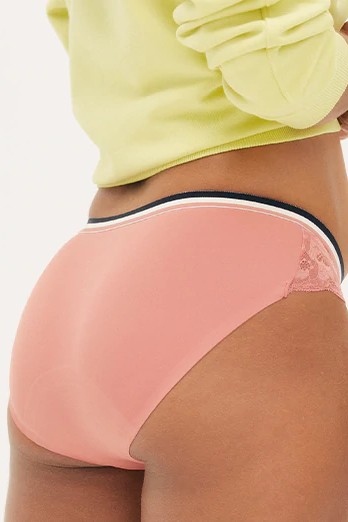
This is my favorite pair of period underwear. It's not bulky, never leaks, and it's so pretty! Gone are the days that I force myself to wear my oldest, rattiest pairs of underwear on my period. This pair makes me feel great about myself, and the period stains come out completely in the wash!
Sustainable Menstrual Discs
Menstrual discs have gained tremendous popularity in recent years because of the rare novelty they're able to offer: Mess-free period sex. Many of these discs, however, are single-use, so while many can be worn for up to 12 hours and therefore reduce the volume of menstrual-related waste (in 12 hours, I can go through several pads or tampons) they take up space in landfills anyway.
Enter the reusable menstrual disc, and we have a healthy, mess-free, and environmentally-friendly solution to the period sex quandary. However, as with menstrual cups, take care to consult with your gynecologist before using menstrual discs if you're using an IUD—the suction from certain discs can potentially impact the placement of the IUD.
Reusable Pads
Like many women, I use pads as my go-to when I'm sleeping or just relaxing at home. However, they pile up in landfills, cost a ton of money (especially after decades of having to buy them on a near-monthly basis) and, let's be honest, they often feel like diapers. Instead, consider these reusable fabric pads, which are washable, effective, and infinitely softer than their single-use counterparts.
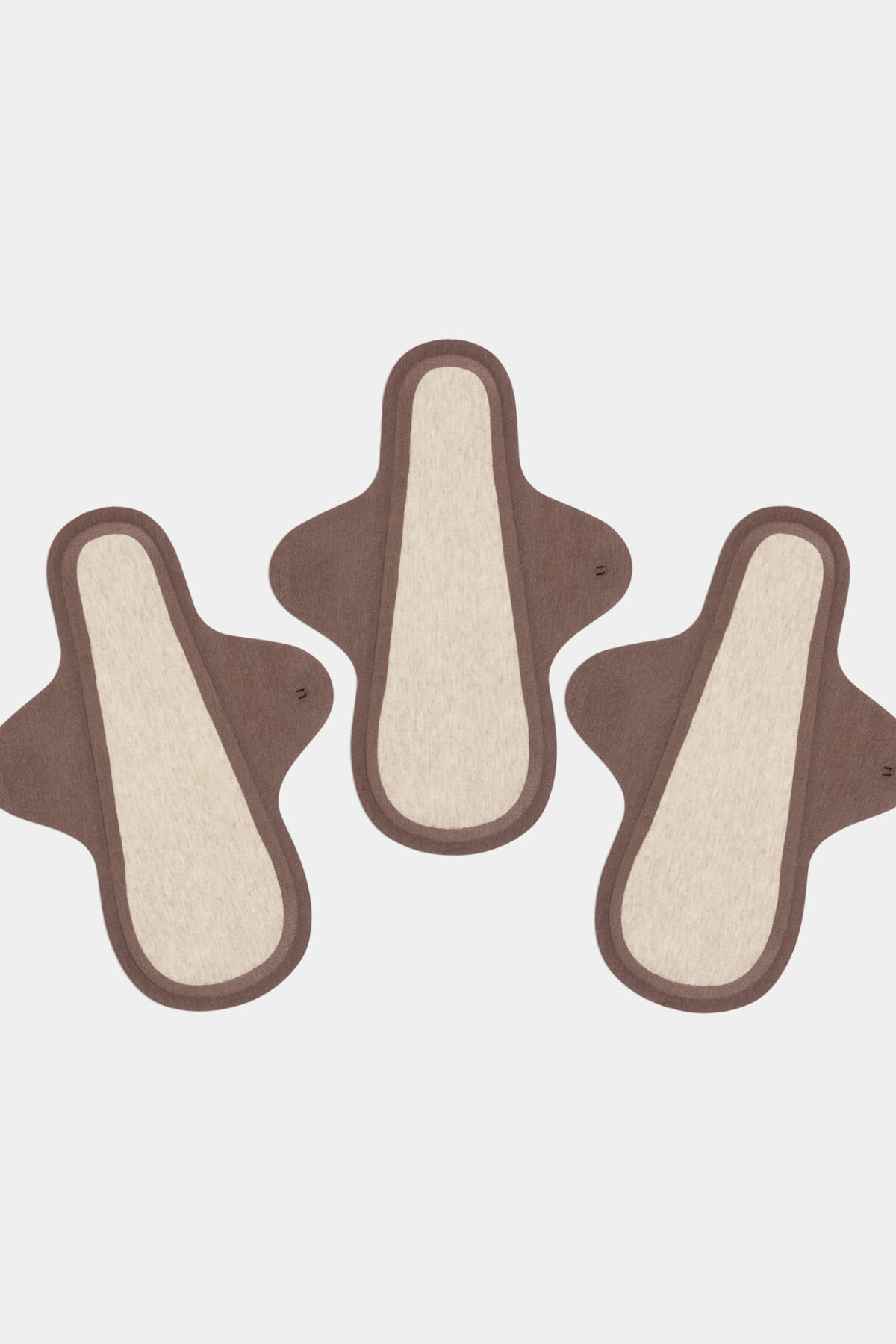
You may know Knix from their comfortable, inclusive lines of swimwear, activewear, and intimates, but did you know that they also sell sustainable period products? I love this pack of three leakproof, reusable pads in particular. They come in a number of different levels of thickness, too, so they're something for you whether you're spotting or experiencing a heavy flow.
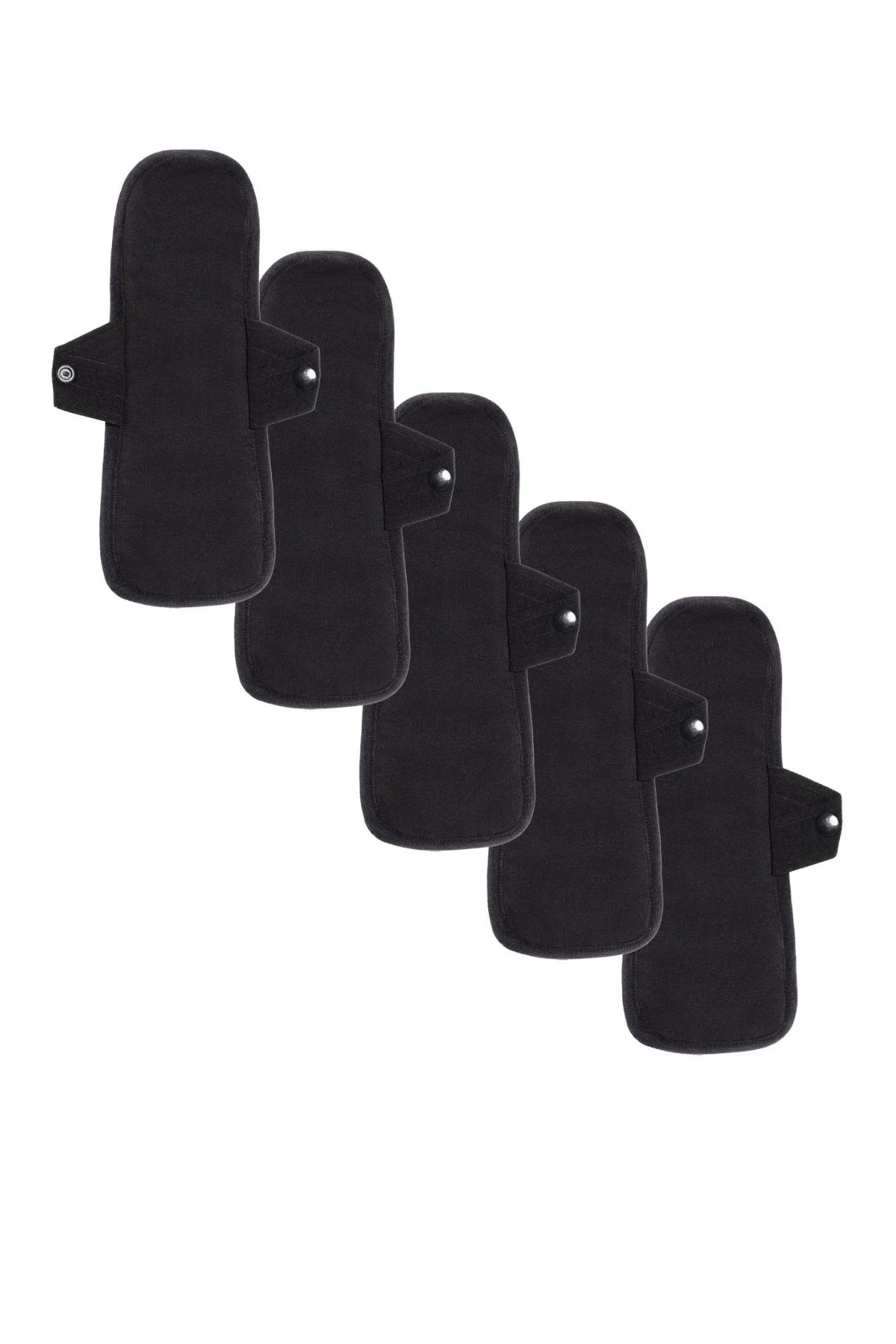
I love this bundle from The Period Company—particularly since it comes in black, so you don't need to worry about storing visibly stained cotton pads in your underwear drawer. Plus, the snaps on the pads' wings ensure that you won't ever need to worry about your pad budging while you're in motion.
Sustainable Tampons
While the above options work for many women, others have a hard time, after almost a lifetime of tampon use, quitting these tried-and-true products. As a result, some menstrual companies have responded by making chlorine-free, organic, biodegradable options that use little-to-no plastic, like these options below.
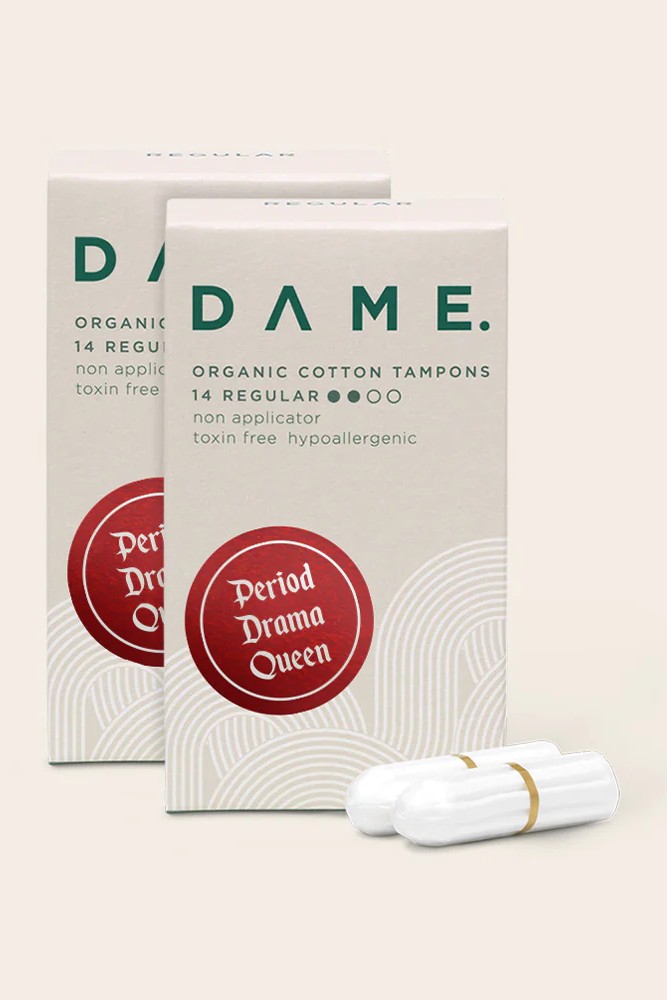
DAME was founded in part as a way of fighting the role that menstrual products play in climate change and pollution. Thus, these applicator-free tampons are made from organic cotton farmed without pesticides. Plus, they're hypoallergenic and free of bleach, plastics, synthetics, and dyes.
Meet the Expert
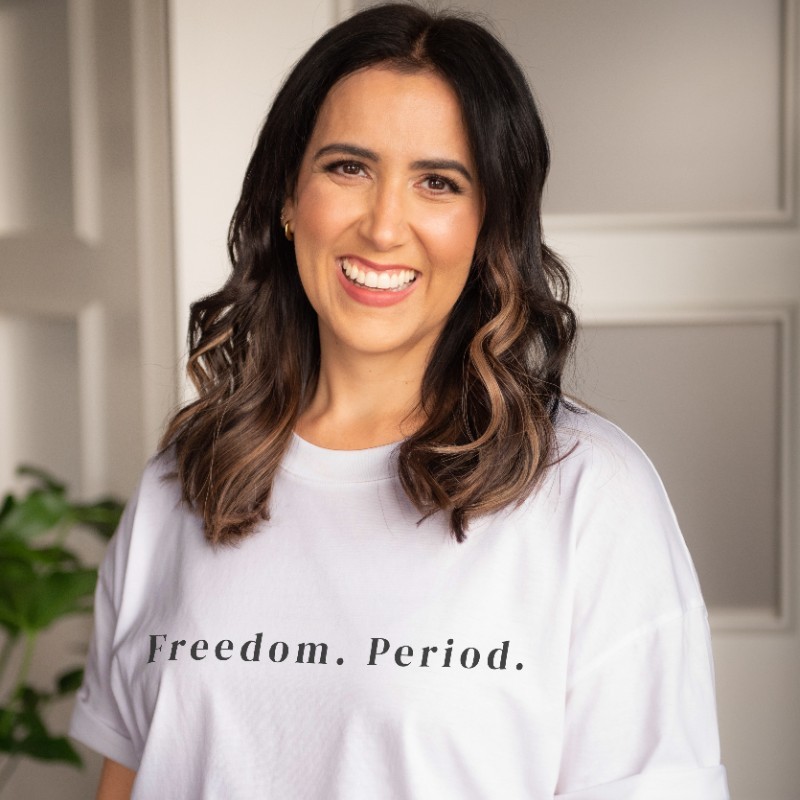
Carinne Chambers-Saini is the founder and CEO of Diva, the company behind the popular DivaCup. A passionate advocate of menstrual equity and women's rights, she is currently based in Ontario.

Gabrielle Ulubay is a Beauty Writer at Marie Claire. She has also written about sexual wellness, politics, culture, and fashion at Marie Claire and at publications including The New York Times, HuffPost Personal, Bustle, Alma, Muskrat Magazine, O'Bheal, and elsewhere. Her personal essay in The New York Times' Modern Love column kickstarted her professional writing career in 2018, and that piece has since been printed in the 2019 revised edition of the Modern Love book. Having studied history, international relations, and film, she has made films on politics and gender equity in addition to writing about cinema for Film Ireland, University College Cork, and on her personal blog, gabrielleulubay.medium.com. Before working with Marie Claire, Gabrielle worked in local government, higher education, and sales, and has resided in four countries and counting. She has worked extensively in the e-commerce and sales spaces since 2020, and spent two years at Drizly, where she developed an expertise in finding the best, highest quality goods and experiences money can buy.
Deeply political, she believes that skincare, haircare, and sexual wellness are central tenets to one's overall health and fights for them to be taken seriously, especially for people of color. She also loves studying makeup as a means of artistic expression, drawing on her experience as an artist in her analysis of beauty trends. She's based in New York City, where she can be found watching movies or running her art business when she isn't writing. Find her on Twitter at @GabrielleUlubay or on Instagram at @gabrielle.ulubay, or follow her art at @suburban.graffiti.art
